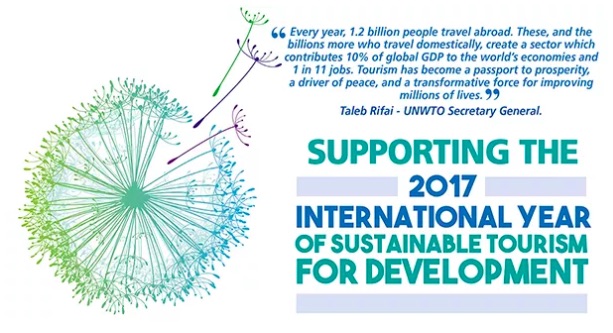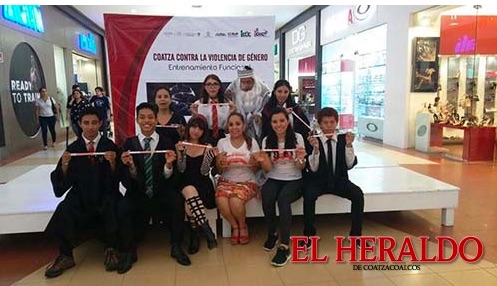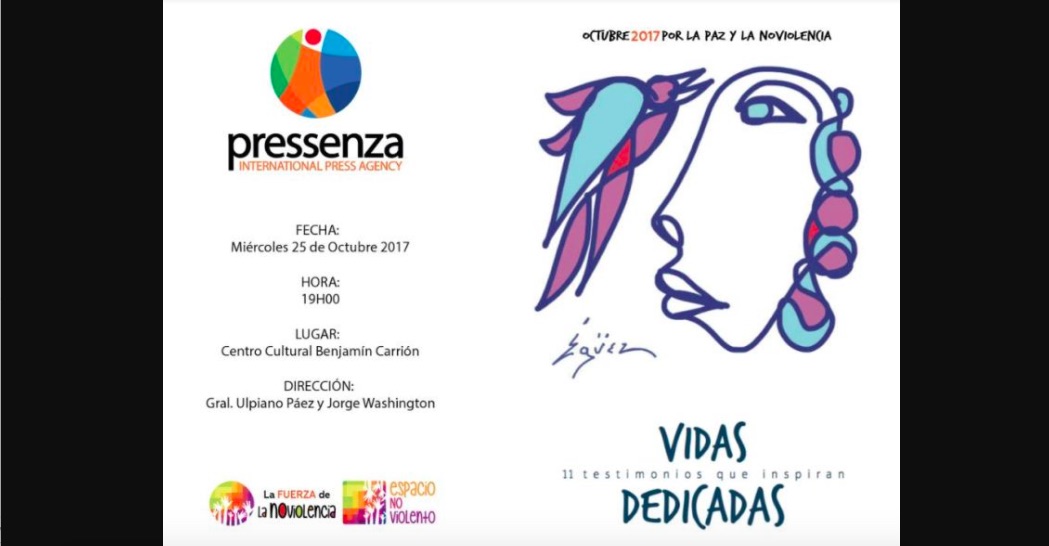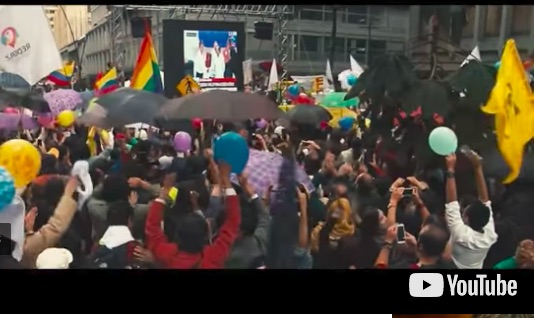This year’s Nobel Peace Prize has been awarded to the International Campaign to Abolish Nuclear Weapons (ICAN), one of the civil society coalitions that supported the development of the United Nations Treaty to ban nuclear weapons. To quote the Nobel Committee, “Nuclear weapons pose a constant threat to humanity and all life on earth. Through binding international agreements, the international community has previously adopted prohibitions against land mines, cluster munitions and biological and chemical weapons. Nuclear weapons are even more destructive, but have not yet been made the object of a similar international legal prohibition.”
For several months now, we have been following progress towards the abolition of nuclear weapons. The July bulletin of CPNN followed the ongoing development of negotiations at the United Nations for the Treaty. The August bulletin headlined that the Treaty was adopted by a majority of the UN General Assermbly – 122 countries.
More recently, during the general debate of the 72nd session of the UN General Assembly from 19 to 25 September in New York, many presidents, prime ministers and foreign ministers from all regions of the world spoke in favour of the Treaty. And on September 26, Ministers and representatives of 46 Member States, delegations, the United Nations system and civil society took the floor during a day-long General Assembly high-level meeting to commemorate the International Day for the Total Elimination of Nuclear Weapons.
However, as we have recognized, while the Treaty is an “important victory for our shared humanity“, its effectiveness is limited, because the UN delegations from all of the countries with nuclear weapons, as well as most of their allies, boycotted the Treaty conference and many of them announced their opposition.
The Treaty will not take effect until it has been formally ratified by 50 Member States of the UN. Although it has been signed by many countries, it has only been ratified by three at last count: Guayana, Thailand and the Holy See. Activists agree that a priority in the coming months is to get at least 50 countries to ratify the treaty.
Where activists do not fully agree is the question of a High-Level Conference on Nuclear Disarmament (UNHLC) proposed to be held by the United Nations in 2018:
Abolition 2000 has established a working group on the UNHLC;
Parliamentarians for Nuclear Non-proliferation and Disarmament (PNND) organized an event at the Inter-Parliamentary Union Assembly in St Petersburg to promote the ban treaty, nuclear-risk reduction measures and the 2018 UNHLC; PNND has just produced a Parliamentary Action Plan for a Nuclear-Weapon-Free World;
The Abolition 2000 Youth Network and PNND are organising an international youth conference on the UNHLC to take place in Prague, Czech Republic on Nov 28-29, 2017;
UNFOLD ZERO maintains a webpage dedicated to the 2018 UN High-Level Conference that includes all relevant documents, reports and actions;
UNFOLD ZERO and PNND will produce a civil society action guide for the 2018 UNHLC;
Arguing in favor of the UNHLC, one leading activist, Alyn Ware, has told CPNN that it follows the model of other UN High Level conferences such as the Sustainable Development Conference (2015) which adopted the Sustainable Development Goals. the Climate Change Conference (2016) which adopted the Paris Agreement. the Oceans Conference (2017) which adopted the 14-point action plan ‘Our Oceans, Our Future’, and the Refugees conference (2016) which adopted the New York Declaration. He emphasized that one key aspect which ensured their success was strong cooperative action by civil society.
On the other hand, Alyn regrets that some disarmament organisations are calling the UNHLC a ‘distraction’. This includes ICAN that won the Nobel Prize. We may assume that they are skeptical about UN High Level Conferences in the same way that leading environmental activists were skeptical about the outcome of the Climate Change Conference that adopted the Paris Agreement in 2016. At that time, CPNN reported that James Hansen, father of climate change awareness, called the Paris talks ‘a fraud’ and Naomi Klein, another leading environmenal activist said that “We are going backwards, COP21 is the opposite of progress.”
To make the Treaty effective, and to make a High-Level Conference effective, it will not be enough to have the words of the non-nuclear Member States. We must have actions as well as words. It is up to cities, parliaments and non-governmental organizations to put sufficient pressure on the states with nuclear weapons to bring them to the point of disarmament. The Treaty and High-Level Conference can be effective tools to be used in this process.
|
DISARMAMENT AND SECURITY |
TOLERANCE AND SOLIDARITY |
DEMOCRATIC PARTICIPATION |
SUSTAINABLE DEVELOPMENT |
|
WOMEN’S EQUALITY |
HUMAN RIGHTS |
FREE FLOW OF INFORMATION |
EDUCATION FOR PEACE |







